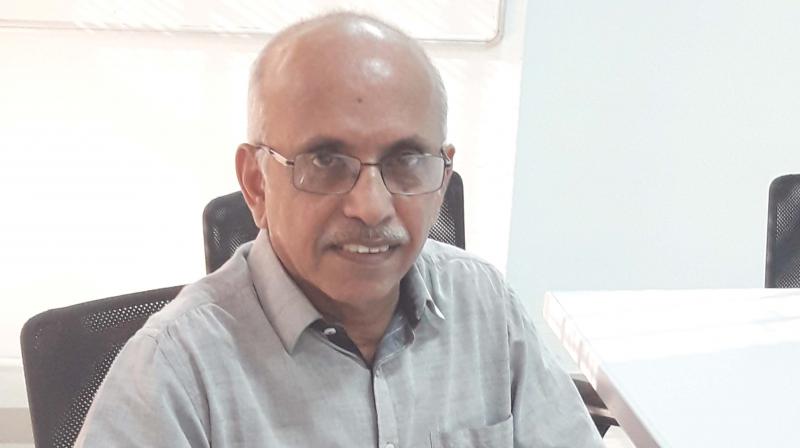Palliative care crucial for patients, improves their quality of life: Dr MR Rajagopal

With the entire medical industry’s focus being on disease and treatment, not much attention is paid to the growing need for palliative care in the country. Dr M R Rajagopal, chairman, Pallium India, who is also director of the Trivandrum Institute of Palliative Society is on a mission to spread awareness about this neglected aspect of medical care. Widely known as the Father of Indian palliative care, he spoke to Joyeeta Chakravorty a day before arriving in the city for the launch of 'Hippocratic,' a film on his own life, about issues closest to his heart. Excerpts:
Can you define palliative care in the Indian context?
Palliative care has not gained the importance it deserves here. Sadly, in India we only look at the disease and entirely ignore the person. What we need is not just disease centric- treatment but an individualistic-family centered approach to treating a person. The need for palliative care is greater in India than in the West simply because disease-specific treatment does not reach patients adequately or early enough. In India, it is estimated that 60 per cent of the people dying annually will suffer from prolonged advanced illnesses and more than 60 patients will die from cancer and in pain every hour. At present, less than one per cent of the needy have access to palliative care, which is not exactly a bad thing, but we need the percentage to increase.
What is the biggest misconception and road block to palliative care?
One of the biggest misconceptions about palliative care is that it is restricted to end-of-life care or to terminally ill cancer patients. In reality, palliative care can, and should, be part of the care plan from the time of diagnosis of any chronic or advanced illness. It is care that aims to improve the quality of a patient’s life and that of his/her family through the illness trajectory and even after bereavement.
Then there is the awareness and advocacy issue. There are no groups of patients or even families of the terminally ill that can take their case forward. We need a movement to get the government to focus on palliative care. Sadly, it is not understood.
What about palliative care centres?
In India, currently there are approximately 908 palliative care centres delivering it through home care, and outpatient and inpatient service. More than 91 per cent of these centres (841) are in Kerala.
What has been your biggest challenge?
The biggest challenge has been the Medical Council of India. Despite reaching out to it to several times, nothing much has been achieved. It has already completed the new curriculum, but I am not sure whether it includes palliative care. But it has accepted palliative care as a specialty and started a postgraduate course in it, but it is needed in undergraduate education too. Today's medical student cannot assess and manage pain as the focus is so much on the disease.
Which states have kickstarted an effort in this direction?
Thet Kerela University of Health Sciences has introduced it in its curriculum, but it is still to start in practice. Tamil Nadu has more palliative care than many other states, but does not have a state policy on it. Maharashtra was the second state to develop a palliative care policy and Karnataka , third, but both are still awaiting implementation.

